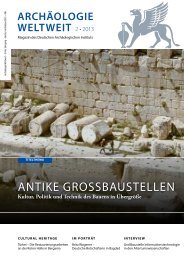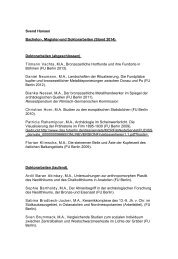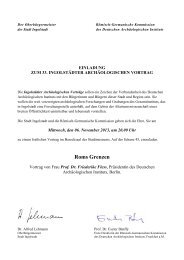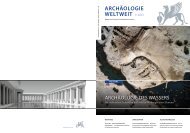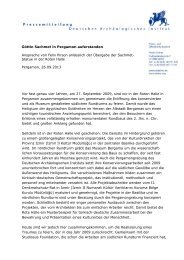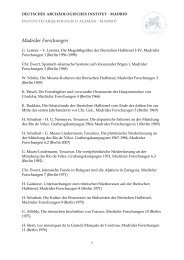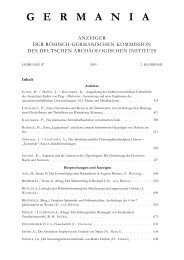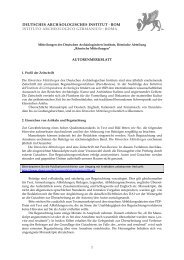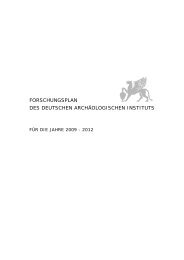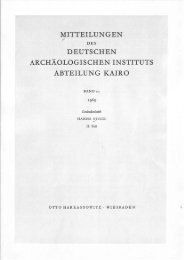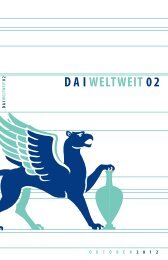Untitled - Deutsches Archäologisches Institut
Untitled - Deutsches Archäologisches Institut
Untitled - Deutsches Archäologisches Institut
Create successful ePaper yourself
Turn your PDF publications into a flip-book with our unique Google optimized e-Paper software.
12<br />
The newly discovered theatre of Didyma<br />
The project “Kulte im Kult” conducts investigations at the sanctuary of Apollo in Didyma<br />
funded by the Academy of Sciences and Fine Arts (NRW) since 2009. They aim to expose the<br />
ancient topography of the famous oracle site by targeted excavations. Today, our knowledge<br />
of ancient religious structures in the centre of the sanctuary is essentially dominated by the<br />
monumental temple of Apollo.<br />
However, this year’s excavations have brought to light the – albeit scanty – remains of another<br />
large edifice, located to the south of the Temple of Apollo. It is a theatre, opening westwards<br />
with a diameter of approximately 48 m. Preserved are the lower layers – measuring 34 m – of<br />
the north supporting wall and the north-western parodos wall, as well as the stairs of a side<br />
entrance (Fig. below right) and rounded seats of the auditorium. According to the archaeological<br />
evidence, the theatre was built in the second half of the 1 st century AD. In this phase<br />
the theatre was able to host about 2,500 spectators. In the first half of the 2 nd century the<br />
cavea was enlarged to provide seating capacity for over 3,000 people. Probably architectural<br />
blocks of a long known aedicula facade (Fig. below left) can be connected with the stage area<br />
of the second building phase. According to a surviving inscription on these blocs, an unknown<br />
donor dedicated the building to Apollo and the Emperor Hadrian.<br />
Further inscriptions, dealing with artistic competitions and performances at the great ritual<br />
festival – the Didymeia – point to the existence of a theatre at Didyma. Since no evidence for<br />
a suitable venue had been found before, the former excavators supposed that these contests<br />
might have taken place in the city-theatre at Miletus.<br />
Helga Bumke, Jan Breder



